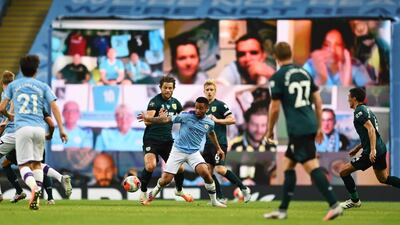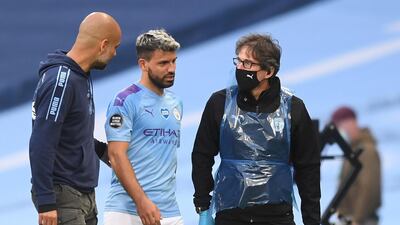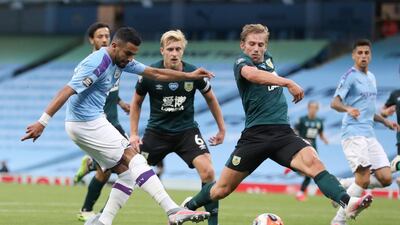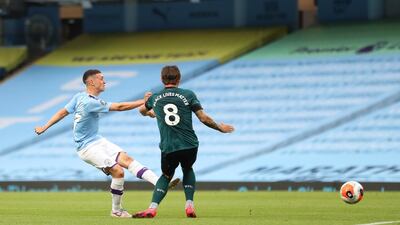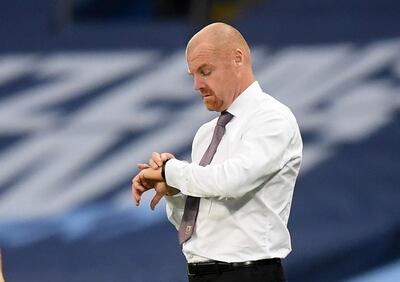In football’s strange new world, some things stay the same. Burnley still lose 5-0 at the Etihad Stadium and Sean Dyche, invariably the manager who makes the fewest substitutions in the Premier League, only puts seven men on the bench.
The amended regulations stipulate clubs can name nine but Dyche bluntly declared: “It was everything we have got.”
The less-than-magnificent seven included two teenagers, two goalkeepers and only two senior outfield players, in defenders Kevin Long and Erik Pieters. Suffice to say there was not an impact substitute among them.
But if misfortune contributed, with Burnley’s resources depleted by injuries to Chris Wood, Ashley Barnes, Robbie Brady and Johann Berg Gudmundsson, it was also a sign of the times.
The focus on the June 30 gang, the players whose contracts expired before the season’s end, largely lay at the super-clubs, with David Silva and Adam Lallana, David Luiz and Jan Vertonghen, Willian and Pedro.
Yet Burnley, with a smaller squad, a habit of running down players’ contracts and a group in the final months of their deals, were more vulnerable.
They were without Adam Legzdins, Joe Hart, Jeff Hendrick, Phil Bardsley and Aaron Lennon on Monday. None is likely to play again this season.
Burnley were only willing to offer short-term contract extensions and, in four cases, that arguably makes sense. Legzdins was the fourth-choice goalkeeper.
Hart, the second choice, played 19 games last season in which Burnley took just 12 points. Extending the deal of the club’s best-paid player, and one of their worst signings, to sit on the bench scarcely makes fiscal sense. Lennon, who has only made four league starts this season, is a fading force.
Bardsley turns 35 next week: he is not the long-term choice but a combative presence who had displaced Matt Lowton at right-back.
The former club record buy Hendrick is in the fortunate position of being coveted and if rumours about AC Milan and Roma feel outlandish, he is a regular. He will be the biggest loss. He is the only one to merit a long-term deal.
But these are damaging times for Burnley. They wanted to play again; chairman Mike Garlick warned cancelling the season would cost them £50 million (Dh229m). Completing it now will deny them of £5m in matchday revenue plus millions more in rebates to broadcasters.
Each Premier League position carries prize money, but a club certain to stay up may deem it a false economy to pay for reserves. It is a question of shorter and longer-term objectives.
But harm can be done in other ways. Dyche’s bond with the board feels dented. He cited a meagre average net spend of £9m per year in the Premier League as he argued he had funded the deals he wanted.
“We are in incredible financial shape so there is a balance,” he said. “We have been run very well financially in the time I have been here and that has allowed us to come through this period without any questions.”
Dyche is afforded more power than many a Premier League manager, but there are limits. “The chairman still makes the decisions,” he added. “I can only advise and then it goes to the powers above me and their decisions have been different.”
He called Burnley’s finances “stringent” and elaborated: “We don’t throw money around.”
An injury-hit, short-staffed Burnley may have to limp through the rest of the season, but it seems a safe bet Dyche may want the money saved now to bolster his budget in the transfer market.
He has done a wonderful job, but Burnley and Dyche are stuck with each other. Now a relationship may need to be repaired.









